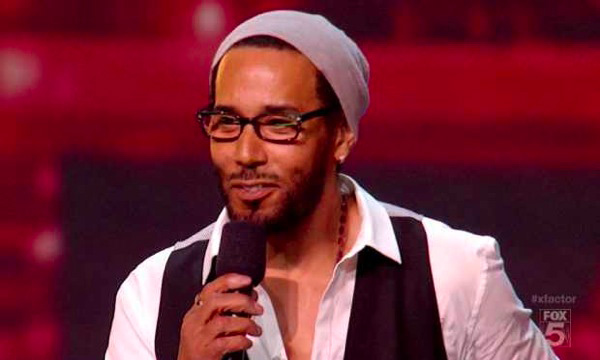- Question: How do the ingredients in e-cigarettes and vaporizers affect respiratory health? - August 16, 2019
- Bad Technique and Vocal Injury - January 9, 2019
- Is Edible Marijuana Dangerous for the Voice? Myths Dispelled - December 18, 2018
- Surprise! You have a hemorrhage - January 31, 2018
- Graves’ Disease: Treatment Overview - September 25, 2017
- Adele and the Stigma of Vocal Injury - July 11, 2017
- Vocal Curbside Consult: How does the thyroid affect the voice? - May 16, 2017
- Vocal Curbside Consult: How do hormones affect the voice? - May 3, 2017
- Vocal Curbside Consult: How do emotion and stress affect the voice? - April 17, 2017
- Vocal Curbside Consult: Vocal Recovery After Illness - April 7, 2017

Is there such a thing as vocal burn out, like an expiration age for the voice? Does the voice have an age limit before it stops working? The question of age and voice limits has recently been highlighted on Fox’s new hit TV show, The X-Factor, where contestant LeRoy Bell is proving that age has little to do with vocal strength. It’s not just Bell’s incredible voice that has viewers stunned; it’s also the fact that he’s almost 60 years old. In a society that reveres youth, Bell defies the odds, making it into the final 12 against far younger competitors. Bell’s fellow aspiring stars including 14 year old Drew Ryniewicz and 13 year old Rachel Crow.
Given Bell’s success, is it fair that people question whether or not a 60 year old can still sing strong enough to impress the judges? Part of the problem is that nowadays, those who are succeeding in music start off at a very young age when their voices are relatively unused and youthful. Breaking into the music scene at the age 60 is unheard of. But is Bell at a disadvantage because of his aged voice? Is his voice at the end of its lifespan, and therefore limited? Are younger singers inherently at an advantage?
The reality is that your voice doesn’t necessarily deteriorate with age. There is no rule guaranteeing your voice will mature with age either. The younger you are when you start a rigorous singing schedule, the more likely you are to damage your voice or burn out and lose your voice before you hit your 40s. The consequences of a rigorous singing schedule on a developing 13 or 14 year old voice are not yet known. However it is thought that the young singer is not prepared for intense vocal use and that, when the demand is too high, damage can occur rapidly. It is a relatively new phenomenon to put young voices to such vocal extremes. We do know that even 20 and 30 year olds who make it often lose their singing voices by the time they hit their 50s and 60s. 20-30 years of singing often takes a harsh toll on the voice.
Consider Steven Tyler, who has spent 40 years singing. Tyler has used his singing voice far more over the past decades than Bell, despite their relative same age. While Tyler can still strain and hit his rock scream, Bell lightly accessing his high tenor is a wholly different tune. There is an ease and smoothness of Bell’s pitch-perfect sound that is likely difficult for Tyler to achieve.
A normal vocal cord is lined with soft, flexible tissue, like the inside of your cheek. Excessive or harsh voice use causes this tissue to become swell. Repeat use makes this swelling become stiff scar, which no longer vibrates smoothly. Over time, scarring accumulates and worsens voice quality. The loss of pliability results in a rough sound and a decrease in the range of the singing voice. This is a much more common phenomenon in pop, rock, and Broadway singers. However, there are no absolutes. Opera and gospel singers can scar and rock singers can avoid scarring. The determining factor ends up being how well the artist cares for their voice.
It is important to recognize that some musicians desire the rougher tone that scarring creates. For example, Tyler would not hold nearly the same appeal if his high G was clear and operatic. His raspiness works, and is a large part of his appeal. There is something to be said for his mastery of the metal scream, even if it is likely causing vocal damage.
Singing for a long time does not guarantee a damaged voice. In truth, while the voice usually does weaken with age, singing consistently and skillfully can delay this weakening. Singing is actually a form of exercise for your voice. Bell is a great example of how singing throughout your life can give you a strong and beautiful voice, even at 60. His age also gives him a maturity that a 13 year-old performer simply cannot have. He has experience at controlling his voice, knowing when to hold back and when he is safe to push. He knows how his instrument works. This has enabled him to preserve his voice, so that at 60, he has a fresh, uninjured sound.
As Bell has taught us, voices do not have expiration dates. With delicate care and practice, voices actually mature and improve with age. There is no age at which a person can no longer sing; but without care for the instrument, voices do have a running clock. How fast that clock goes and how long it takes to expire is entirely dependent on the user. In Bell’s case, it seems he is only in the early hours of his career.
To learn more about Dr. Reena Gupta and voice preservation, visit: http://www.voicedoctorla.com/



